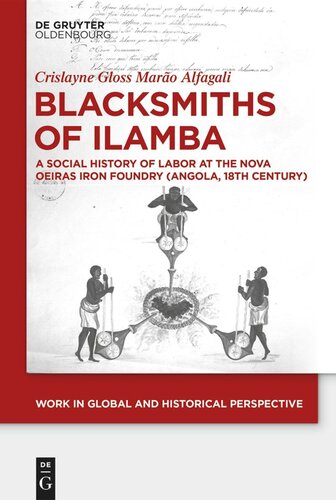

Most ebook files are in PDF format, so you can easily read them using various software such as Foxit Reader or directly on the Google Chrome browser.
Some ebook files are released by publishers in other formats such as .awz, .mobi, .epub, .fb2, etc. You may need to install specific software to read these formats on mobile/PC, such as Calibre.
Please read the tutorial at this link: https://ebookbell.com/faq
We offer FREE conversion to the popular formats you request; however, this may take some time. Therefore, right after payment, please email us, and we will try to provide the service as quickly as possible.
For some exceptional file formats or broken links (if any), please refrain from opening any disputes. Instead, email us first, and we will try to assist within a maximum of 6 hours.
EbookBell Team

0.0
0 reviewsThis study analyzes the establishment of an iron foundry in the interior 18th-century of Angola. It was a fruit of the Portuguese Enlightenment, which encouraged investment in manufacturing, particularly of iron, a metal indispensable for military and technological purposes. However, the plans faced the resistance of African blacksmiths and founders who refused to learn foreign techniques and work processes. By emphasizing Central African agency, the book highlights the successful strategies of historical actors who scholars have largely ignored.
Based upon a wide variety of sources from Brazilian, Portuguese, and Angolan archives, the book reconstructs how Africans were taken to work at the foundry and the important role they played in developing the form of production employed there. By emphasizing continuities with African technology and the quality of the iron produced, it counters interpretations of the project as an example of the failure of the Portuguese Enlightenment.
The analysis demonstrates the circulation of knowledge about iron production, thus revitalizing debates that have posited knowledge transmission as unidirectional. It also highlights the relationship between local political leaders and the colonial government, in addition to elucidating the processes by which workers were organized.